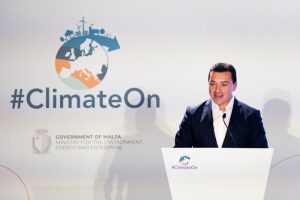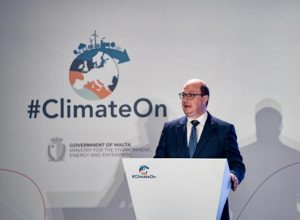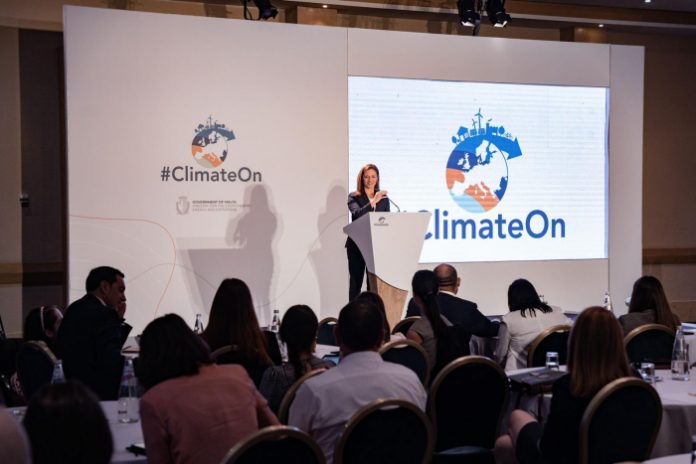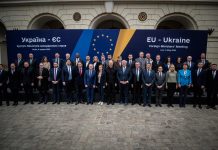Reducing emissions from road transport, mobilising funds towards sustainable investments and increasing energy efficiency in buildings emerged as the three main priorities to speed up Malta’s transition towards a green economy that combats climate change.
In its second year running, the five-month #ClimateOn campaign came to an end on Friday, bringing together government, agencies, and private stakeholders on activating real change to address climate change. The conference was also held on the eve of the COP27, in preparation for Malta’s participation to the United Nations Climate Change Conference taking place in Sharm El Sheikh, Egypt.
Malta is implementing the Low Carbon Development Strategy (LCDS) – a plan that puts into action the island’s commitments in line with the European Union’s Fit for 55 package. The Ministry for the Environment, Energy and Enterprise together with Prof Simone Borg, Malta’s Ambassador for Climate Action, organised a series of stakeholder dialogue meetings on Sustainable Mobility in Road Transport, Sustainable Finance and Energy Efficiency in Buildings.
Minister for the Environment, Climate Change and Enterprise Miriam Dalli reiterated government’s commitment to achieve climate targets and move towards climate neutrality. “This has been manifested once again in the government’s budget plan as investment in our families and businesses will continue to support them towards the green and just transition”, Miriam Dalli said.
Taking part in the discussion were also Minister for Transport, Infrastructure and Capital Projects Aaron Farrugia and Minister for Public Works and Planning Stefan Zrinzo Azzopardi.

Minister Farrugia highlighted government’s commitment to continue investing in an improved transport infrastructure. “We are also developing projects to promote increased active mobility across our road network and looking at a mass transit system”, said the minister.

Minister Zrinzo Azzopardi explained that that awareness raising on means to improve energy efficiency in homes and offices was crucial. “Knowledge and capacity building are two challenges that we are striving to address in order to support this economic pillar to decarbonize and transform into a more sustainable construction industry”, he continued.
Margaret Cassar, Director General at the Environment Ministry, explained that: “In order to mainstream climate policy across all sectors, the public and private sector need to work in hand in the implementation of LCDS. The #ClimateOn platform allows for open continuous communication between all stakeholders in order to enhance capacity for a greener and climate resilient economy”.
During the seminars, participants discussed the major challenges and how these could be addressed. A corporate EV training course was also launched, targeting the shift towards cleaner vehicles. The short course, provided free of charge by EIT Urban Mobility and MCAST, offers businesses and professionals with knowledge on electric vehicles, their impact on the environment and how to phase out conventional vehicles.
During the sustainable mobility seminar, stakeholders highlighted the increased need for more awareness to enable better commuting choices, the enabling of infrastructure that favours a modal shift, and the need for efficient mass public transport. During the sustainable finance seminar, stakeholders explained that Malta has the firepower of private capital that can enable the country to achieve its green ambition. On energy efficiency, stakeholders referred to Malta’s energy vision, direct electrification, and the government’s plan to increase cleaner sources of energy. To support this transition, the introduction of standards and codes, policy and regulations is crucial.
Photos: MEEE










